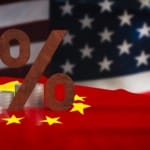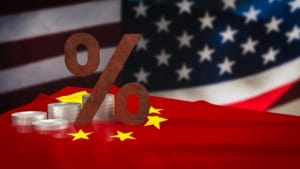Innovation drives legacy industries at TechInnovation 2025
Industry leaders at TechInnovation 2025 shared how innovation and collaboration are helping legacy businesses modernise for the future.

At TechInnovation 2025, leaders from across industries shared how established businesses are embracing technology, collaboration, and innovation to stay relevant in a rapidly changing world. Organised by IPI Singapore, the event brought together more than 4,000 participants from over 40 countries, showcasing 100 emerging technologies across sectors such as HealthTech, sustainability, advanced manufacturing, and circular food innovation.
Table Of Content
Transforming the steel industry through technology
Eric Leong, Co-Founder, Chairman, and CEO of Mlion Corporation, shared the company’s journey from a traditional steel supplier to a technology-driven enterprise. With support from IPI Singapore, Mlion sought expert advice to engage third-party partners and develop new digital solutions. The result was GoListed, an online marketplace for surplus steel, and GoTagging, an RFID system that enhances traceability and reuse of materials.
Leong also introduced the company’s latest initiative, an AI Copilot that automates sales processes and reduces manual work. These efforts, he said, demonstrate how strategic collaboration and innovation can help even long-established industries improve efficiency and sustainability. His story underscored the value of adopting modern tools to transform traditional operations into agile, forward-looking businesses.
Blending heritage with modern relevance
The event also featured a fireside chat with Richard Eu, Group Chairman of Eu Yan Sang International Ltd., a heritage brand with 145 years of history. In conversation with Sheree Tan, Manager of Marketing and Communications, Partnerships, at IPI Singapore, Eu discussed how the company continues to evolve by balancing tradition with modern innovation.
He spoke about the importance of rebranding and adapting retail models to remain meaningful to younger generations. Eu highlighted that staying true to core values while embracing new technologies allows legacy brands like Eu Yan Sang to thrive in modern markets. “When I joined in 1989, our turnover in Singapore was about S$3 million a year, and it had stayed that way for decades,” he said. “I believed we could grow to S$20 million by changing how we worked, opening more branches, and reaching new customers. In the years that followed, that vision became reality. Real growth, to me, begins when you challenge old mindsets and have the courage to try new ideas.”
Family enterprises embrace change
A panel discussion titled “Legacy, lah! Leveraging Innovation for Multi-Generational Businesses” explored how family-run enterprises adapt to changing markets. Moderated by Ramachandran Rajamanickam, Innovation Advisor at IPI Singapore, the session featured Tan Ting Wei, Transformation Lead at Fire Armour; Jamie Lim, CEO of Scanteak; Jackie Lau, Managing Director of Seng Heng Engineering; and Alvin Choo, Director of Kwong Cheong Thye.
The panellists shared experiences on how innovation across areas such as design, automation, sustainability, and e-commerce is vital for keeping family businesses competitive. Choo said, “To sustain a business for five generations, it’s not just about growth but also about passion and values. As our older generations remind us, you must always remember your roots. And for us, those roots are our customers.” The discussion reinforced the importance of adapting to new technologies while maintaining the heritage and integrity that define long-standing enterprises.
Collaboration drives global innovation
During the event, a Letter of Intent (LOI) was signed between MindChip from Estonia and KOAI Co. Ltd from Korea to explore collaboration in the co-development and customisation of KOBOT, a robotic solution designed for marine vessels. The partnership aims to foster joint research and development, technical exchanges, and future innovation opportunities between both companies.
The three-day exhibition provided a platform for businesses, innovators, and partners to connect, exchange ideas, and collaborate on real-world solutions. By facilitating these cross-border partnerships, TechInnovation 2025 reaffirmed its role as a key driver of innovation and business impact across industries.
















